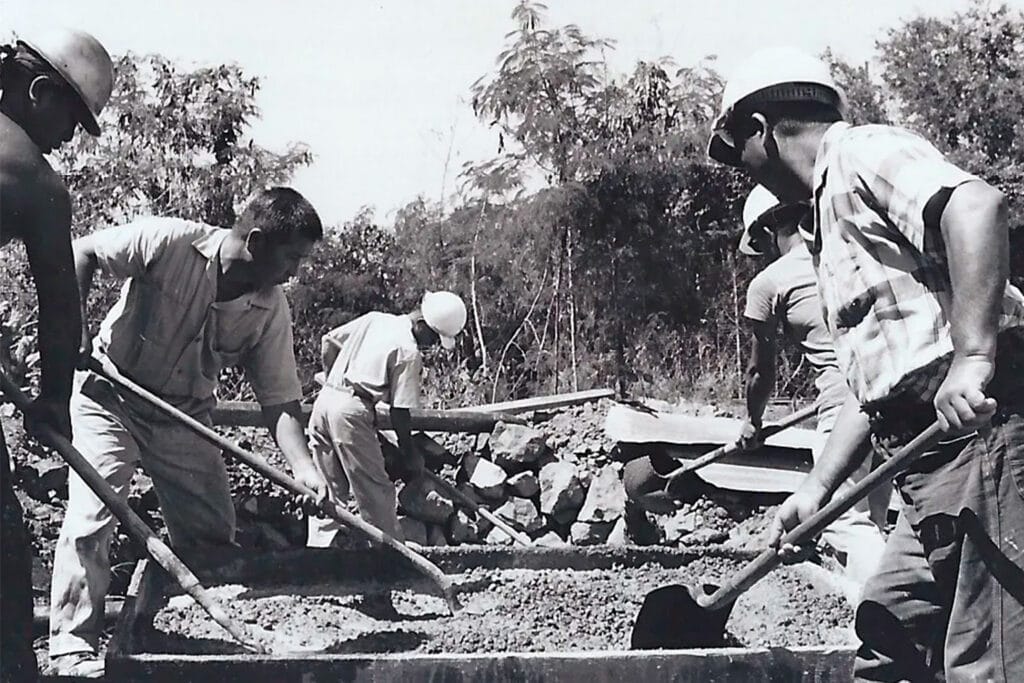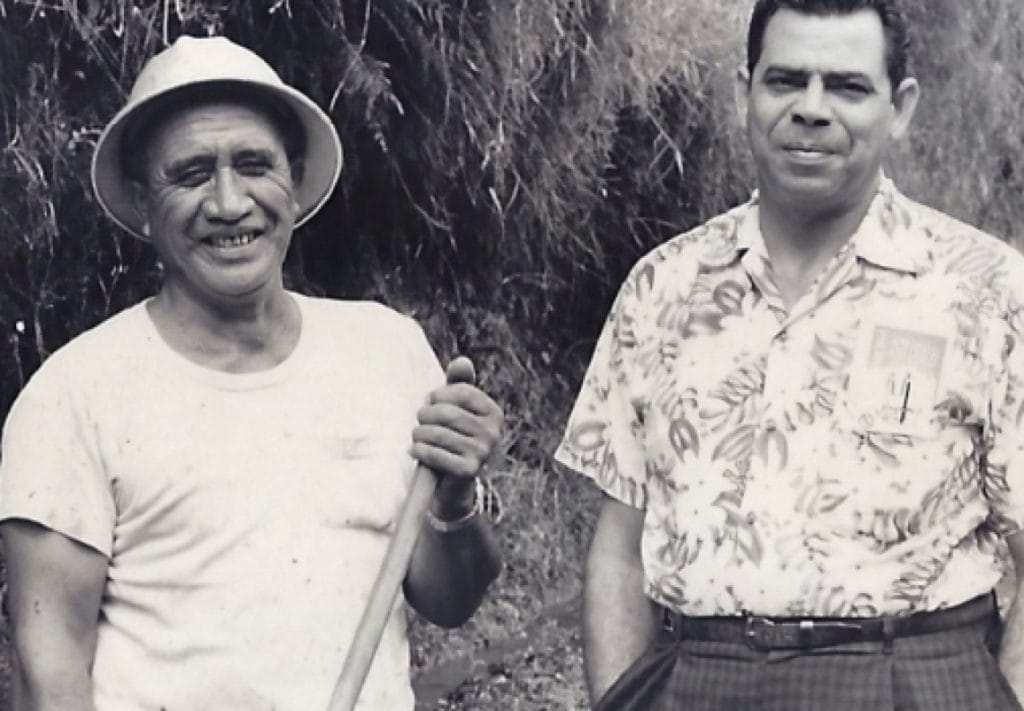Taking root in a desire among Hawaii plantation workers for better wages, hours and conditions of work, the United Public Workers was founded in 1944.

Recognizing the success of ILWU organizing on plantations and wanting better for themselves and their families, a small group of Hilo road workers began organizing. The main issue for this group was the lack of work for per diem workers, who were often hired for only five or 10 days a month.
During an era when most of today’s worker protections were non-existent, Union building, for many, was at the threat of losing employment. Still, although issues in their workplaces varied, workers across the state came to the same general consensus of Hilo Road Workers: they had little to lose.

McCarthy Era red-baiting only intensified a climate controlled by an anti-worker agenda. In fact, red-baiting had become so pervasive that although originally formed as a chapter of United Public Workers of America (UPWA), under the recommendation of the UPWA International, the Hawaii UPWA voted to disaffiliate with the International and drop “America” from its name in late 1953. Despite disaffiliation, some of the major newspapers carried editorials insinuating that the name-change typified the union’s un-Americanism.
Undeterred, by February 1969, the UPW had organized more than 4,000 members in the Oahu Division alone.
By 1970, the UPW had built enough strength to challenge a legal system without collective bargaining in the public sector. The UPW staged marches and demonstrations under the recommendation of the ILWU and the leadership of Henry B. Epstein, the first UPW State Director who was initially recruited by the UPWA to organize in Hawaii. Activism finally paid off in June 1970 with the passage of Act 171, authorizing public sector collective bargaining under the law.
Soon after the law was passed, the UPW joined the American Federation of State, County, and Municipal Employees union (AFSCME). AFSCME granted UPW a Charter that gave the UPW jurisdiction over state and county blue-collar, nonsupervisory and working foremen positions, and nonprofessional hospital and institutional workers excluding white-collar workers.
In 1981, UPW State Director Epstein retired and Gary Rodrigues was elected State Director.
As the only Union representing both Private and Public sector employees at the time, the foundation of solidarity withstood differences and continued to strengthen through the 1990s. Privatization was a major threat to UPW members in the Public Sector, and on April 19, 2000, more than 5,500 UPW members came out to rally at the State Capitol.
In 2002, the Union was challenged like never before, when Rodrigues was indicted and found guilty on more than 100 federal charges, including embezzlement of UPW funds. AFSCME International subsequently placed the UPW under trusteeship through 2004 to allow for the election of state officers in 2003 to include State Director Dayton Nakanelua, State President Steven DeCosta, and State Secretary-Treasurer Faye Hanohano-Kaawaloa.
In 2009, the Union was again threatened by a downturn in the US and State economies, and furloughs and layoffs under Governor Linda Lingle. Demonstrating against Lingle’s unilateral implementation of furloughs and layoffs, the UPW organized and showed up in droves to participate in a rally at the State Capitol with other public unions on June 30, 2009. Through a joint Union action with the HGEA, HSTA, and UHPA, the UPW was successful in delaying Lingle’s unilateral actions with respect to furloughs. Only upon verifying the state’s fiscal crisis and in an effort to avoid deep layoffs of public sector employees, the UPW negotiated terms of furloughs that were acceptable to members.
Furloughs ended in 2012, only for UPW to pick up where we left off with issues of privatization at the legislature. UPW had been successful in warding off privatization efforts in various units on the county and state levels. In light of threats, Nakanelua expanded services to members through the hiring of full-time staff in newly-created government affairs and communications departments. Despite efforts to organize and inform members, the legislature dealt a major blow to UPW in 2016, privatizing the Maui Region of Hawaii Health Systems Corporation.
Transitional support in negotiations over a severance package with Governor David Ige resulted in solidarity that has withstood the test of privatization, as 500 UPW members, whose positions were privatized, elected to remain under the representation of UPW’s Private Sector.
In 2022, Kalani Werner was elected the new state director of UPW after Nakanelua was removed from office in 2020. It was the first time that general membership was allowed to vote directly to select the new state director. Darrell Wilcox was selected as the new UPW president and Junior Moananu was elected secretary-treasurer.
The Union has been busy successfully fighting for the rights of its members. In April of 2023, UPW members at Kaiser’s Maui Health System voted to ratify a a new three-year contract, ending a nearly two-month strike. The new contract, which included pay-scale adjustments for all job classifications and other benefits, represented months of hard work and determination.
UPW is also actively working to secure Temporary Hazard Pay for UPW members who bravely worked during the COVID-19 pandemic.
All of these efforts underscore the value UPW brings it members in fighting for better wages, hours and working conditions.
Hand-to-mouth existence under the per diem system, a lot of favoritism by the bosses, no promotion rights. A man couldn’t support his family right on the pay…That’s why we built ourselves a union.
Tommy Yamashita, First UPW member on Maui, March 1968 UPW Organizer